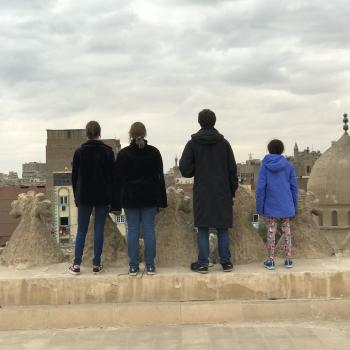I followed the paper trail from a comment on the Eid Books post from the other day that landed me on the blog S-L-M: Peace. The post I read was called Woe to Foes: The Koran.
I immediately wanted to read the post. I was hoping that it was not going to be another misinterpretation, but a well thought out approach. I held my breath and dove in.
Afterwords, this is what I had to say:
Meredith,
I followed you back here after you posted a comment on my blog the other day.
I applaud your attempting to read The Quran. It is not an easy read, even with the help of the commentary and a teacher. I would offer these recommendations though.
1. Read not from The Cow to the back, but after The Fatihah, read from the last chapter to the front. The chapters are smaller, and they are more easily digested, and this is the way almost all Muslims learn.
2. I would encourage you to read with the assistance of a commentary. I understand that you would like to form your own opinions, but each chapter does not discuss one topic. The topics jump around and this is the main reason why things are taken out of context and distorted. Sometimes the verse could be addressing a question, sometimes asking a question and sometimes addressing something historical.
This is a problem that I had when I made my first attempt at reading The Quran. It is not linear, there is no set formula to follow, and without the commentary (the rest of the story) it is often very confusing. The Quran is published exactly the way it was revealed to Mohammed, it has not been edited.
3. As a non-Muslim, my initial approach to learning about the religion was to take my Children’s Bible Stories and compare them with Quran Stories for Little Muslims. They talk of the same people. From there, I’ve compared the stories of all of the prophets, and the stories of the events around them. (Moses’s story with Egypt and the Pharaoh, Joseph and his Coat, David and the animals, Jesus’ birth and death.) If you try to find these stories in The Quran, they are not told in whole chapters, but in segments scattered all throughout the book.
And to answer your question: Non-Believers are people who do not believe in the existence of One God. Islam teaches that all of the messengers from Judaism and Christianity are to be revered as Prophets. Moses was teaching the same message that Jesus continued teaching, and Mohammed completed the message. They are all people ‘of the book.’
Please feel free to visit my blog, or send me email. I will be as helpful as I can with my limited, non-Muslim knowledge of Islam from the outside looking in.
Kristina











